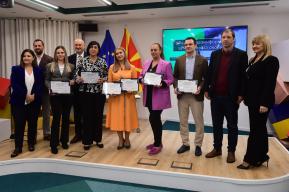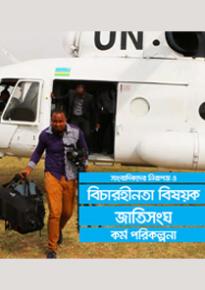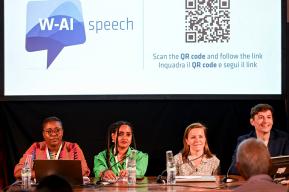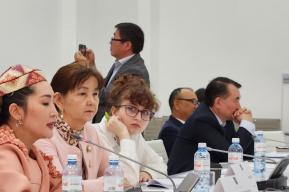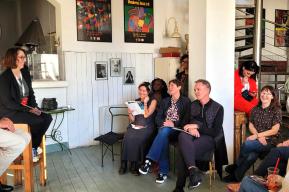News
The Global Media Defence Fund Backs the Largest-Ever Investigative Journalism Conference

The 13th Global Conference on Investigative Journalism took place on 19-22 September in Gothenburg, Sweden, with UNESCO’s Global Media Defence Fund among its thirty partners and sponsors. This year’s event marked the largest edition of the Conference since its inception, with over 2000 participants from about 140 countries, underscoring the vitality of the investigative journalism community.
At the Conference’s opening, David Kaplan, the Executive Director of the Global Investigative Journalism Network (GIJN), recalled that this movement to recommit and amplify investigative journalism had started with a conference held in Amsterdam in 2005, attended by a few hundred.
Two decades ago, investigative journalism was considered in dire straits. To stimulate its revival, UNESCO collaborated with the Arab Reporters for Investigative Journalism (ARIJ) to publish The Story-Based Inquiry: A Manual for Investigative Journalists. This was followed by the release of the Global Investigative Journalism Casebook, both authored by Mark Lee Hunter, a co-founder of GIJN. These resources have since been translated into over 40 languages and have been instrumental in training thousands of journalists worldwide.
Mark Lee Hunter described the significance of the publications, stating, “The book was innovative because it focused on logistics on investigations; how do you set up an investigation; how you structure it. It was a conceptual tool because it introduced the idea of hypothesis driven investigation.“
During the conference in Gothenburg, UNESCO held its first in-person, closed roundtable among partners of the Global Media Defense Fund, with a specific emphasis on supporting investigative journalism that addresses the issue of impunity for crimes against journalists. Partner organizations showcased their accomplishments and recounted their experiences, as well as the challenges and best practices they have encountered in the field of investigative journalism in different regions.
The session served as a valuable platform to discuss successful strategies and techniques for overcoming obstacles faced during investigative work. It also aimed to offer recommendations on how the Global Media Defense Fund can better implement its objective to support investigative journalism that contributes to the reduction of impunity for crimes against journalists while enhancing the safety of those engaged in this crucial work.
Rawan Damen, the Executive Director of Arab Reporters for Investigative Journalism (ARIJ) articulated the urgency of the situation, saying “Many investigative journalists are threatened online and physically. Some of them have been killed. The interest of the perpetrators is to close the investigations and remain unpunished. We need to do all what is in our hands to keep investigating the killings and to keep their stories alive.”
About the Global Media Defence Fund
The Global Media Defense Fund (GMDF) is a UNESCO-administered fund that supports local, regional and global not-for-profit organizations working to bolster journalists’ legal protection and enhance media freedom through relevant investigative journalism and strategic litigation.
Since 2019, the Fund has supported over 5,000 journalists, 1,500 lawyers and 200 NGOs. Over 120 projects have been supported worldwide. Learn more here.


